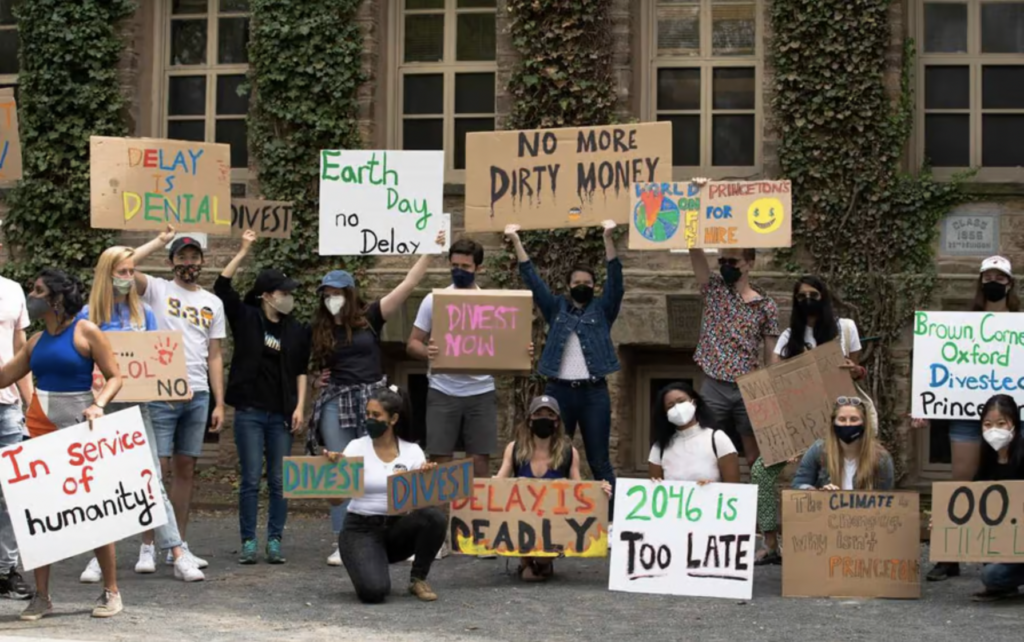October 6, 2022
Princeton Activists Just Won a Historic Victory for Climate Research
By Lisa Herforth-Hebbert
After a decade of student organizing, Princeton made a pledge to divest its endowment and reject fossil fuel money. Will more universities follow?
By Chelsey Gilchrist and Claire Kaufman

On Thursday September 29, 2022, after more than nine years of student and alumni organizing, Princeton University finally announced that it will divest from fossil fuels. As the university had $1.7 billion currently invested in fossil fuels—and one of the largest endowments in the nation—this is a huge win for the Princeton community and the world.
In addition to fully divesting the endowment of fossil fuels, Princeton will also reject gifts and grants from 90 companies involved in the coal and tar sands sectors of the fossil fuel industry, including current research funders ExxonMobil, Syncrude, and Total E&P. This is a departure from typical divestment decisions. Dissociation has only ever been used twice before at Princeton: to combat apartheid in South Africa in 1987 and in protest of the Darfur genocide in Sudan in 2006.
This new policy is a pivotal step towards a fossil-free future for research. In the past five years alone, Princeton received $26 million in research funding from fossil fuel companies. Its decision to divest and dissociate will fundamentally remake how academia interacts with polluting corporations, and is a testament to the growing power of the Fossil Free Research movement.


